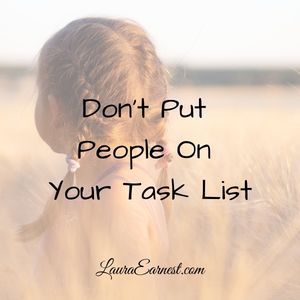So many people seeking inner peace and simplicity also mention that they are seeking a balance between work and life. I was greatly encouraged by Adrian Savage’s article “Slow Leadership: The Plain Truth About Work/Life Balance” (sadly, no longer on the web). It really struck a chord with me. His five truths are:
1. Work is simply a part of life, but it needs to be an enjoyable part. If it isn’t, do something about that right away.
“If your life only begins when work ends, you need to find another job or career.” We spend too many hours working to have it be a detested activity. A great many of work-place problems, though, can be changed by changing one thing we have control over: ourselves. If you detest your job, ask what can change. If you can’t change anything, then look for a new job. 8 hours or more a day is too much to waste in something that sucks the life force out of you.
2. Look for balance on a short-term basis only. Stay flexible. Remember it’s like balancing on one leg: rigidity will quickly bring you down.
It is worth thinking about a work-life balance less like a pie chart with portions that are fixed, and more like a juggling act where you have to be constantly adapting to the circumstances so that the balls don’t come down. Flexibility works both toward the personal and professional lives: there may be times when you have to take time off to care for a sick family member, and there may be times when you have to spend more time at the office to get something out the door. It’s all about
3. Set boundaries and try to stick to them. If you compromise too much, your balance will be lost. The ideal is to shift flexibly within your boundaries without going past them.
If your professional life is such that you are supposed to work 40 hours per week, and you have put in 80 for many more weeks than you can count (and there is no end in sight) you may need to consider if you are OK with it. If you are not, then you have moved past your boundary. I will never forget my first client when I came back from maternity leave: he demanded overtime every week as well as me working through a pre-scheduled vacation. I didn’t have the spine to stand up to him, and have regretted it ever since. Now I refuse to work past my specified hours unless there is an emergency. And I am very up front about what my definition of emergency is: if a client cannot complete the work they need to do on a system I am writing/supporting. Anything else, particularly those things caused by poor planning, are not.
4. Have priorities that reflect your stage of life and personal circumstances. Change them in line with life’s changes. Don’t cling to outdated choices.
10 years ago, my priorities were much different. I didn’t have a family or house. Now with both in my life, I have very different ideas of what I want to do. I recently negotiated to lessen my work hours so that I can be home when my daughter is not in school. Luckily, my current client is supportive. If they had not been, I would have asked to be reassigned somewhere else.
5. You can’t ever have it all. Be willing to let some aspirations go with a smile.
Too many “systems”, “programs” and “theories” these days all try to bypass an immutable law: when dealing with individuals, we cannot give/have/perform at more than 100%. 100% is the absolute limit for an individual. So if you add something to your life, it is only logical that something else will have to decrease because you will never exceed 100%. So stop trying.
Balance is conscious choice, and can be very straightforward.





